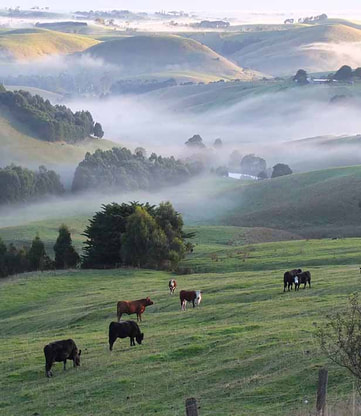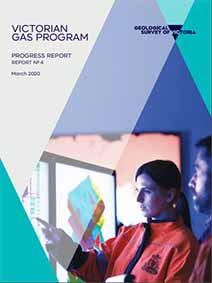 Lauren Burns signs up for a public workshop on the
Lauren Burns signs up for a public workshop on the Victorian Gas Program and learns that Gippsland
is in the firing line.
IN THE midst of the coronavirus pandemic you’d be forgiven if you missed the Victorian government’s announcement that it was lifting the three-year moratorium on onshore gas production, which expired on June 30. This paves the way for conventional gas wells in Victoria.
Spooked by this summer’s bushfires and smoke haze – unwelcome signs of a new way of life as we continue to burn fossil fuels like gas – I signed up for an online public consultation workshop on the Victorian Gas Program (VGP). Living in Inverloch, I was interested to find out what the government was planning for the Gippsland Basin gas field, a vast area stretching from Phillip Island to Lakes Entrance.

Sure, jobs are necessary, especially in coronavirus times, but we could choose a better path. Bass Coast’s draft Climate Action Plan recommends assistance for households, farms and businesses to switch away from gas to electric appliances such as heat pumps for heating, cooling and hot water systems. This would create jobs, cut our energy bills and avoid 80,000 tonnes of CO2 that would otherwise be fuelling more intense droughts and bushfires.
Ditching gas also means we could escape the soaring gas price which has sent our manufacturing and food production industries to the wall, killing jobs. Locally, Gippsland households and businesses such as dairies that use gas to heat and pasteurise milk are feeling the pain.
Why has the price of gas tripled? It isn’t true, as the gas industry claims, that onshore gas moratoriums in NSW and Victoria are the “key culprits”. Instead, the answer goes back to 2015 when the Federal government allowed gas companies such as Santos to lock up Queensland’s plentiful gas in massive export contracts that siphon it off overseas.
According to Rod Sims, head of Australia’s consumer watchdog the ACCC, "The gas companies assured governments that the local market would be fine, that prices wouldn't go up. And that turned out not to be the case. So I think the gas industry as a whole certainly has to carry a lot of blame for the mess.” He also remarked, "Often self-interest dominates what companies tell governments."
In opposition to community concerns, AGL has plans to build a gas import terminal in Western Port Bay on a protected wetland because it’s cheaper to reimport the gas we already exported overseas! Under the powers of the Australian Domestic Gas Security Mechanism, the Federal government could fix this absurdity by pulling the lever to reserve gas for local use. In one fell swoop this would cut gas prices by three quarters, bringing much needed relief for households and businesses struggling with the economic fallout from the COVID-19 pandemic.
Instead, government is campaigning in lockstep with the industry for a gas-led economic recovery that rewards the same bad actors – notorious for hiding profits offshore and paying zero tax back to the communities they source gas from – with subsidies to build yet more gas wells with free public money.
The Federal government cornered Victoria and New South Wales with threats to withhold billions of federal dollars for energy infrastructure until the states agreed to quit their gas moratoriums. It’s a national scandal that doesn’t get the attention it deserves. The Victorian government has sunk $42.5 million of our money into the Victorian Gas Program to undertaken research and feasibility studies on behalf of the industry. Probably not the best stewardship of the public interest or purse.
At the community consultation workshop we were shown a map tool featuring Gippsland’s coastline, parks, farms, infrastructure, communities and cultural heritage sites. The map was overlaid with a land sensitivity ranking of between one and five. “At what rating would gas projects be excluded?” asked a member of the public. The reply was evasive so the woman again pressed her question. “Nothing is being excluded at this stage,” answered the consultant. In other words, there’s no guarantee any parts of our Distinctive Area Landscape would be protected from the gas industries tentacles.
“Gas is a polluting fossil fuel that puts Victorian’s health and safety at risk,” said Doctors for the Environment and GP Katherine Barraclough. It’s also a pool that runs dry, in contrast to renewable energy that supplies a stream of clean, cheap energy that doesn’t run out.
Inspired by the Northern Rivers Lock the Gate alliance, Gippsland should reject the dishonest gas industry and the Victorian Gas Program that backs it.